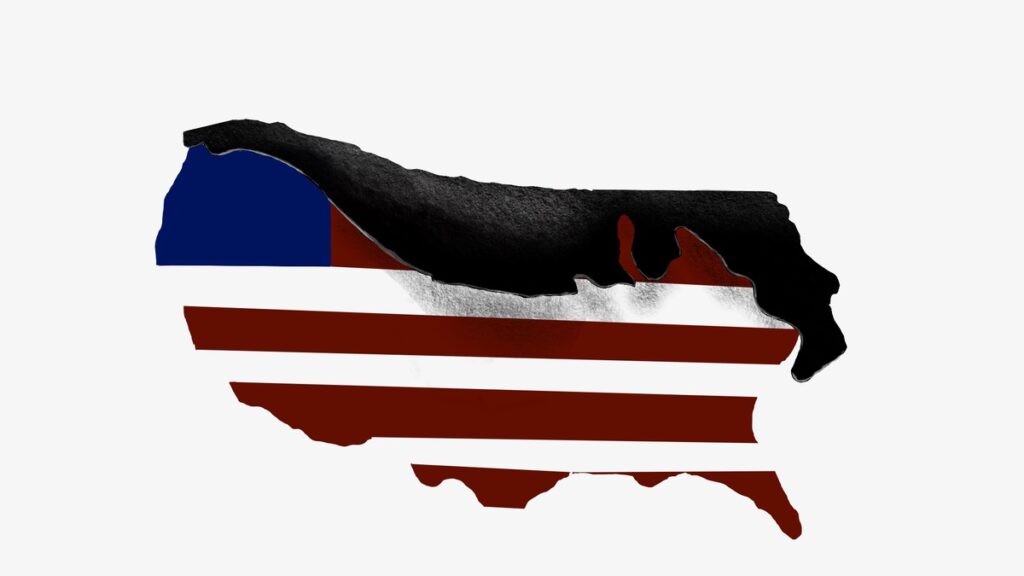“America is respected again in the world, and looked to for leadership.”
When former U.S. President Ronald Reagan left office in 1989, his farewell address was proud and triumphant. His view of the United States was that of a ‘city on a hill,’ a metaphor coined by the famous colonial Puritan Governor John Winthrop. In his address, Reagan echoed Winthrop and called the United States a “tall proud city built on rocks stronger than oceans, windswept, God blessed, and teeming with people of all kinds living in harmony and peace.”
American leaders have emphasized their nation’s exceptionalism throughout the years, and it has become a central part of the American identity. For decades, the United States has felt the obligation to lead the world to progress and freedom. American foreign policy has historically reflected this concept of exceptionalism, resulting in mixed international reactions. In the 1958 novel The Ugly American, authors William Lederer and Eugene Burdick write about the brash and disrespectful behavior of culturally ignorant diplomats in East Asia who exacerbated geopolitical tensions during the tense Cold War era. The term has come to represent the idea that Amereicans are rude and entitled when engaging with or visiting foreign countries. This begs the question: in 2020, how “ugly” is the United States to the rest of the world?
The failure of American leadership amid the COVID-19 pandemic has exacerbated concerns over the United States’ position on the global stage. The world’s perceptions of the United States and its leadership have plummeted to points as low as, or lower than, they were during the controversial Iraq War. This year, in the face of the ongoing coronavirus global public health challenge, U.S. leadership has fallen short. Similar to its approach to the Iraq war, the United States continues to lie to the world and play by its own rules in an delusional attempt to exist above global standards.
This delusion has risen to absurd levels. Despite President Donald Trump’s own government telling him that the virus was deadly, he told the public that “one day — it’s like a miracle — it will disappear.” This statement was made in February, and even then it was clear that his assessment was wildly incorrect. However the damage in early 2020 was nowhere near current levels. According to data published by The New York Times, the United States reported three new deaths on March 1. By the end of April, days reporting over 2,000 deaths were not uncommon, and as of October 11, the daily toll consistently hovers around 500.
As of publication, more than 214,000 people have died in the United States.
Despite these staggering numbers, Trump gave a speech to several thousand unmasked fans at a rally in Swanton, Ohio in September and maintained that “It affects virtually nobody.” This was just a day before the United States surpassed the grim milestone of 200,000 deaths. Repeatedly ignoring mask protocols both personally and publicly at massive rallies since the beginning of the pandemic, and ignoring successful models of mitigation in order to stubbornly deny science, has not proven to be an effective way to tackle the problem. And on October 1, the President and First Lady were both diagnosed with COVID-19 shortly after Hope Hicks, one of the President’s closest aides, was confirmed positive. Now, there are as many as 34 cases amongst White House aides, including Press Secretary Kayleigh McEnany and former New Jersey governor Chris Christie.
Trump still has not recommended that the general public wear a mask, and instead, casts doubt and claims that masks could possibly harm one’s health. A president who actively lies to his own country, puts thousands of lives in danger by spreading misinformation, and in turn, refuses to adequately supply citizens with resources to fight the virus is failing his duty. This lack of leadership and the proliferation of faulty policy is what makes the United States so “ugly” right now. During a pandemic, there should be a global responsibility to keep others safe. Just one person can start a new wave of the virus and the cracks in the American political system are quickly turning into virus-ridden chasms.
The world has taken notice. In a September Pew Research poll of 13 nations across continents, nearly 15% of respondents thought positively of the United States’ coronavirus response, 16% were confident in Trump, and 34% viewed the United States positively overall. These numbers are overwhelmingly low. Overall, Trump is less trusted than the leaders of Germany, France and the United Kingdom. Unbelievably, that same poll of shows he is even trusted slightly less than Vladimir Putin, corrupt authoritarian extraordinaire, and Xi Jinping, who faces global scrutiny as he commits genocide against China’s Muslim minorities.
And now, Trump is dealing with the coronavirus’ impact on his health, with the well being of White House officials in jeopardy. After being released from the hospital, the President took to Twitter, tweeting: “Don’t be afraid of Covid.” Just days after being diagnosed, he made his way back to the White House, signed autographs for fans, climbed up the stairs, took his mask off, and stepped inside — all despite not being declared non-contagious until October 10. Then, only 11 days after his diagnosis, a maskless President Trump held a rally of thousands in Florida, where he expressed his desire to kiss everyone in attendance.
The country with the highest number of COVID cases and COVID-related deaths, with the world cringing at its callousness, now has its president telling citizens not to worry. This is all while President Trump claims experimental drug cocktails that the average citizen has no access to have cured him.
The world is laughing.
While plenty of countries took the diplomatic route with routine well-wishes for Trump after revealing his COVID-19 diagnosis, others were smug in their response. Polish Foreign Minister Radosław Sikorski warned Trump not to ingest bleach in light of the President’s earlier, allegedly sarcastic, recommendation that bleach could help treat coronavirus. Germany, which has some of the lowest approval ratings in Europe for Trump and the United States, had the term schadenfreude — used to describe the feeling of joy that comes with another’s suffering — trending on Twitter.
Washington D.C., once a ‘City on a Hill,’ is becoming sick and weak. The United States is no longer exceptional. One of the most important countries in the world has 75% of new COVID-19 cases and 69% of all related deaths since July 1 among 83 countries categorized as “high-income” by the World Bank. Americans only make up 27% of the “high-income” countries’ population.
The world has also just watched an embarrassing lack of decorum in the first 2020 U.S. Presidential debate, with some snarky commentary from international media and governments. The Russian state news channel opined that “the candidates behaved like their voters — brawls on the streets of American cities have not let down for several months. America is divided and inflamed.” While Russian state television may have its biases on U.S. politics, their scathing assessment is echoed by many.
The world’s mightiest modern empire has become a source of global schadenfreude, culminating in an “ugly” lack of responsibility and accountability for the spread of COVID-19.
But the damage is not irreversible. In 2008, former U.S. President, then-Illinois Senator, Barack Obama and his campaign of “hope” for the American people seemed to inspire hope globally, with confidence levels in U.S. leadership and politics taking a drastic turn from the previous Bush administration. However, the humiliating 2020 presidential debate and current anxiety around global health progress moving in the opposite direction does not exactly project ‘hope’ to the world.
It may be time for the world to learn its lesson. Perhaps countries should look elsewhere for leadership. Perhaps the global community has no need for a hegemon in a globalized and interconnected world. Either way, the United States has lost its respect. Will it be able to gain it back this time, or will things get “uglier?”







